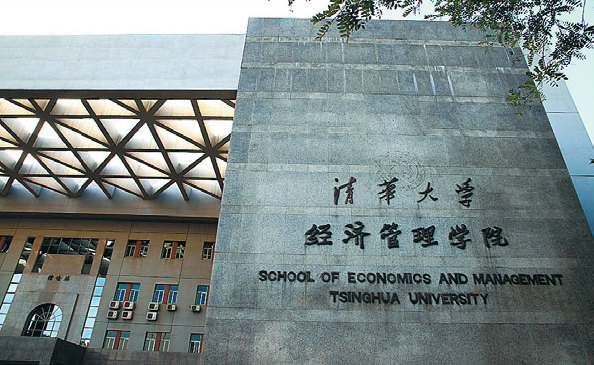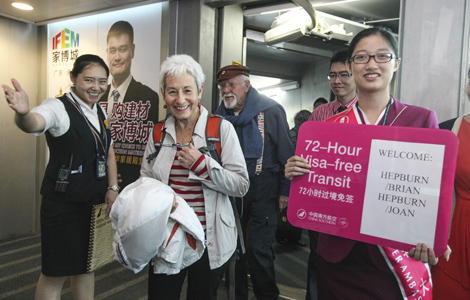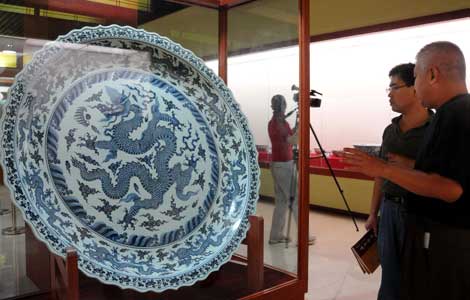Young, aspiring professionals make it their business to learn
Updated: 2013-08-02 07:24
By Wang Zhuoqiong (China Daily)
|
||||||||
|
The average age of MBA students used to be about 28, but more recently it has fallen to 26, according to Marvin Mao, founder of the online-based education network ShareWithU. Provided to China Daily |
Heated competition for management positions is pushing younger professionals into the classroom at business schools, industry insiders note.
Huang Qinghong, 26, who has just obtained the three years of work experience that many business schools require, will start a full-time MBA program this month.
The former human resources consultant said he believed business school would give him broader career options. He wants to be a consultant for acquisitions and mergers after graduating.
Huang considers the MBA a kind of "do over" for his undergraduate years.
"When I applied for university, I was too young to know what I really wanted to do," said Huang. "Now I know exactly what I want. I hope to switch to that direction as early as possible."
Huang is not the youngest member of his incoming class, either. The pressure starts early at work in China, where getting ahead requires more comprehensive knowledge and skills.
Marvin Mao, the founder of the online-based education network ShareWithU, said that the average age of MBA students used to be about 28, but more recently it has fallen to 26.
He said the availability of more transparent information, students' willingness and eagerness to learn and the challenges of getting a better job have all driven younger professionals into business schools.
Students aged between 24 and 26 make up 16 percent of those entering the Guanghua School of Management of Peking University's full-time MBA program this year, compared with only 9 percent last year and 12 percent in 2011, according to the marketing and admissions office.
Although age isn't usually a critical factor in admissions, younger students are quick to learn and active in class discussions and teamwork, according to Yvonne Li, MBA director at the China Europe International Business School.
In the workplace, they are seen as having a bigger chance of switching careers and quicker to absorb new information, Li said.
In the past three years, the proportion of students with less than three years of experience has been about 25 percent, Li added.
The school requires at least two years of full-time time work experience. This guarantees that students can digest the curriculum better and share their experience and learning with peers, Li said.
(China Daily USA 08/02/2013 page18)
Most Viewed
Editor's Picks

|

|

|

|

|

|
Today's Top News
Food program aims to address security
China faces world's worst managerial shortage
Soybean is king in American exports to China
China sails through 'first island chain'
US should reclaim 10% share
Chinese worry about image abroad
China blasts US Senate resolution
NSA chief details program at hackers' conference
US Weekly

|

|
















